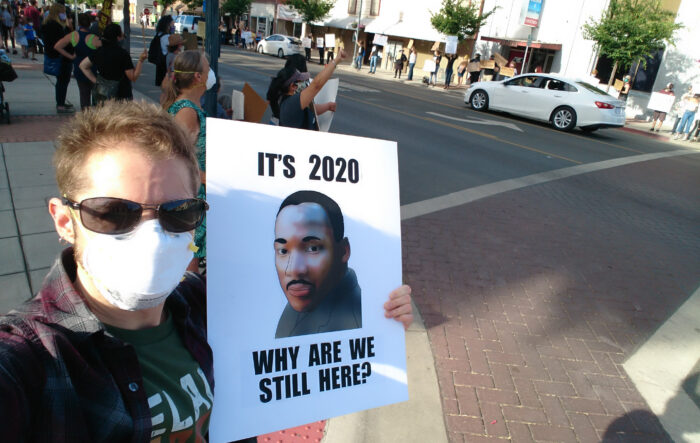 |
| Walt Disney's "New Adventures of Winnie the Pooh", 1988 |
I was eleven when my family relocated out-of-state. Before this I lived in a neighborhood with several kids close to my own age, and had an intimate group of friends at school. After this I briefly became a charity case to a small group of fifth-graders assigned (in my presence) to my care, and my awareness of the fact ignited the first embers of some serious social anxiety. To keep a long story short, by the following grade I had lost motivation to brute force my way into any pre-established peer groups.
I listened to the other kids echo their parents' disgruntlement at the steady stream of immigrants from my state and I internalized their disapproval, transitioning my perspective on the move from one of adventure to estrangement. Instead of the intrepid explorer that had set out, I came to think of being Californian as something inherent and inalterable to my identity, making me an outcast among my new peers.
Prior to the move, my only frame of reference came from children's television; which taught me that I would be welcomed with open arms. Naively, it never occurred to me that these fictionalized depictions might not be representative of reality, and I was naturally unprepared for the bullying, rejection and exclusion. The shock left an indelible mark on my outlook; if things on tv weren't true, what else couldn't be trusted?
 |
| Edwyn hiding under the covers |
This is when my introversion first asserted itself. Rather than defy the negative rhetoric and forcibly ingratiate myself to my new classmates, I retreated internally. This is also when my sexual orientation and gender incongruities first became a social impediment, since neither the over-loud and rambunctious boys nor the over-cautious and delicately dressed girls held appeal for me. Gone were the days, it seemed, of coed games of "Red Light, Green Light" and "Red Rover", of monkey bars and jungle gyms. Now the only game was "Dodge Ball" (a survival game where the object is to avoid being energetically assaulted by a targeted volley-type ball), and the teams were always gendered.
I spent my recess periods, Eeyore-like, posted under a tree, contemplating how much had changed and what it all meant. What life was actually about and what truth really was. Of course, my anti-social behavior was quickly flagged and reported to my parents, and I was discussed by the adults in hushed tones of growing concern, which informed me that I had become a problem. I endeavored to correct my behavior by identifying and establishing a relationship with another outcast among my classmates, without knowing the reasons for her own alienation among the kids she'd grown up with.
I soon learned. She would say anything that would play to her advantage, and smile sanctimoniously as she tore others down to improve her own standing. Friendship brought no immunity from the machinations of this young Rita Skeeter. Impervious beneath her halo of self-certitude, she twisted and manipulated the truth expertly before she was even into her teens, betraying my secrets and besmirching my character to anyone who would listen. Any conflict I shared in confidence became outsized evidence of my social delinquence on her tongue, which she promptly reported with enthusiastic embellishments in order to then educate me on my deteriorating reputation and wayward ways.
Looking back on it today, I don't know how I got out of it alive. It was like descending into hell every morning. Only to come back up in the afternoon just in time for my snack and the afternoon tv animated serials."
— Zerocalcare, Tentacles at My Throat
 |
| Photo by Annemarie Horne. Be kind to rats. |
I think the only things that prevented my complete social impairment were my family, peripheral osmosis of my extroverted father's easy manner with people, and the much more manageable social province of the pre-corporate internet. I carved out my niche on Geocities and cultivated a small handful of close friendships with others who belonged to my obscure corner of the unbridled "world wide web". We chatted daily over ICQ while watching Nickelodeon and MTV together, and developed our html shrines to the unsung celebrities of the American voice-over industry. We were animation nerds.
All of this is to say that the majority of my life became very internal. My activities were independent: reading, drawing, watching cartoons and developing my code. And thinking. I thought about everything. I thought a lot. Any subject that crossed my path deserved extensive and meticulous contemplation. Love. Death. Sex. Religion. World politics. Social justice. Subjective experience.
Consequently, I had ideas about things. And when a subject arose in company that I had given some scrupulous thought, I was eager to share and have my contributions considered. I was able to find traction in certain forums online where I could anonymously debate without age or appearance influencing my credibility, but at home was another story. And I suppose because my father was the least receptive to my input, his validation became, in a way, most important. His opinion was the glass ceiling that I needed to shatter. It galled me to no end when I would go unheard on an issue only to have him adopt a similar perspective because of an article or book where a complete stranger proposed similar points. My mother and I joked about getting ourselves into print to be heard... if only it were our words that were sanctified on the page.
There was one extraordinary exception to this pervasive sense of irrelevance. When the unmoderated bullying and violence at my high school became sufficiently egregious, my father gradually agreed to take me home with him for the lunch period. Those were some of the only times that we would talk one-on-one. I would ask him about what he was reading, which was usually politics and world news, and he would listen and engage with me seriously in discussion. We joked that we would solve the world's problems each day on our lunch hour.
 |
| The World is Saved music video, 2011 |
But these interludes were a strange aberration. By the end of the day, we were both at wit's end with our own stress and respective misery, and exchanges were more often terse and argumentative, relegated to the sordid affairs of ordinary life. Homework, chores, rules and expectations. Attitude and gratitude. He and I fought. He and my mother fought. He and my mother fought about he and I. Alice was no longer in Wonderland.
As my teens wore on and my misery increased, so did the volatility of my moods and the emotional component of my words. These things outraged my father and diminished me in his estimation as a rational agent. I became much more reluctant to open my mouth or reveal my own thinking. My listening skills, already honed to perfection in public school, extended to the home as I shared little and less. Instead I allowed the tempest to rage unchecked in my own head or, at best, unloaded the overflow into journals. For years I screamed, insatiably, into the void.
And that is the origin story. That is, in a nutshell, why I overthink and the reason I write. Why I've sometimes wandered down paths that others have yet to tread. And why, at bottom, I have the excessively common, incurably human, but arguably obsessive need for my signal to be received by other islands of consciousness in the cosmos. I don't put a lot of weight on my own importance; just writing these words feels laughably egocentric. My experience is as unique and as universal as all the rest. And yet, with the rest, I labor under the burden of existence; of being a mote of light in the universe that is curiously, inexplicably, self-aware.
I suppose in the end, it is all just to say, listen to me:
 |
| cave art photographed by Tory Kallman |





